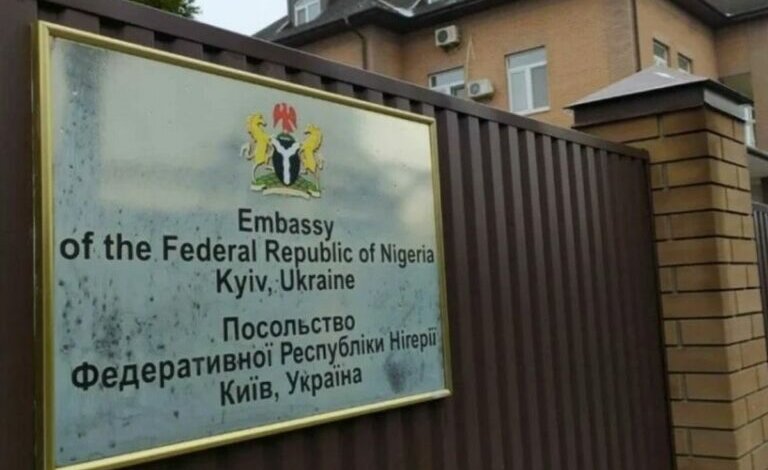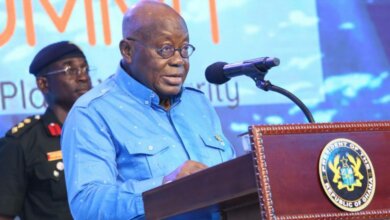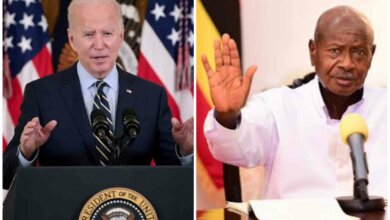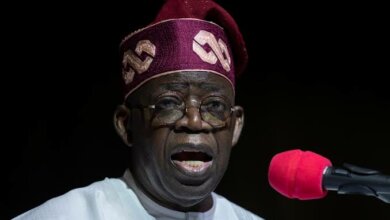How Africa is Affected by Russia’s Attack on Ukraine

African students make up about 20% of all international students in Ukraine. Morocco account for the majority of these students, with nearly 8,000 enrolled at Ukrainian universities. Nigeria follows in line with over 4,000 students, and Egypt with 3,500
The Nigerian embassy in Kiev have told citizens to stay calm but be very attentive and responsible for their own protection and safety. Zimbabwe have also told its residents in Ukraine to seek assistance from the country’s consulate in Berlin. However, in the face of these measures, the panic in Ukraine may prove an equal devastation for the African continent.
Oil prices standing in as one of the biggest concerns
Oil prices have already surpassed $100 per barrel, setting a new high for the year. Although higher oil prices may help the budgets of oil-producing countries like Nigeria and Angola, the cost of transportation is likely to rise for individuals all over Africa. This will have an impact on practically every other product’s price.
“It becomes a double whammy of potentially higher food prices globally and higher energy prices pushing up inflation. And when central banks respond by hiking interest rates, it becomes a triple whammy,” said Charlie Robertson, global chief economist at Renaissance Capital.
As it stands, there are already speculations that the fuel scarcity in Nigeria could get worse as a result of the Russia-Ukraine conflict. Since 4 February, there has been a nationwide fuel crisis in Nigeria due to the scarcity of Premium Motor Spirit (PMS), caused by the importation of adulterated fuel from Belgium that could not be used and therefore had to be returned.
However, Patrick Smith, the editor of the UK-based Africa Confidential newspaper, believes the war presents huge prospects for oil- and gas-producing countries.
“Europe has to rapidly find alternatives to Russian gas, and the most reliable alternatives are in Africa. It’s a great opportunity for African states to move in, and get new deals done quickly,” he added.
Also bread and tea
Smith in his analysis noted a great threat to Africa in an anticipated spike in bread prices, as Russia and Ukraine contribute around 30% of the world’s wheat.
“The price of bread has been a driving force of political instability, and triggered the Arab Spring. The Maghreb countries – Egypt, Tunisia, Morocco, Libya and Algeria, which rely heavily on wheat – could be worst-affected by the tightening of supplies and an increase in prices,” Mr Smith said.
Kenya is especially concerned about the war’s impact on its critical tea sector, as well as the financial sanctions imposed on Russia. Russia is one of Kenya’s top five tea consumers, contributing to the country’s foreign exchange earnings.
“Tea and other beverages are categorised as food items and would normally not be affected by sanctions on trade,” said Edward Mudibo, chief executive officer of the East Africa Tea Traders Association (EATTA).
Read Also: Central African Republic has a new Prime Minister after “firing” the former
The big question about Africans in Ukraine
Ukraine is a popular destination for African students, with thousands studying at its colleges, particularly in medicine, due to its low tuition fees and long-standing relations with Africa dating back to the Soviet era. In Ukraine, there are also other Africans who live and work.
Concerns regarding their safety have grown since the commencement of the war. Ghana’s Ministry of Foreign Affairs has asked the country’s more than 1,000 citizens to “shelter” in their homes or in government-approved shelters.
The National Union of Ghana Students, on the other hand, has called on the government to arrange for their evacuation, claiming that the war necessitates a response similar to that which was adopted when the coronavirus epidemic initially struck.
“We believe the model used for the evacuation of students from China at the peak of the Covid-19 pandemic could be adopted in this instance as well,” it said in a statement.
Nigeria’s Ministry of Foreign Affairs said it had “heard with surprise” news of Russia’s entry and that steps were being taken to ensure the safety of its citizens in Ukraine and to assist the evacuation of those who desire to leave once airports reopened.
A Nigerian medical student in Ukraine, Fatima Halilu, told the BBC that she left Kyiv nearly two weeks ago.
“All my friends are still in Kyiv. They seem stranded, lost and confused,” the 18-year-old said.
How Africa is reacting to the invasion
South Africa, which has the continent’s most industralised economy, has demanded that Russian forces leave Ukraine immediately, saying the conflict should be addressed peacefully.
This position is a setback for Russia, which regards the country as an important African ally. Both countries are members of Brics, a collection of developing economies around the world, and have substantial economic relations.
“Armed conflict will no doubt result in human suffering and destruction, the effects of which will not only affect Ukraine but also reverberate across the world. No country is immune to the effects of this conflict,” a government statement said.
Kenya, the East African economic powerhouse and a non-permanent member of the United Nations Security Council, has gone even further in its condemnation of Russia.
In a rousing speech, Kenya’s ambassador at the UN security council, Martin Kimani, said: “The territorial integrity and sovereignty of Ukraine stands breached. The charter of the United Nations continues to wilt under the relentless assault of the powerful.”
Russia was also chastised by Ghana and Gabon, the two other African countries on the UN Security Council.
As at the time of this publication, no African country has expressed support for Russia’s engagement, including Mali and the Central African Republic, where Russian military are assisting governments in combating insurgencies.
Source: BBC | ecfr
Abeeb Lekan Sodiq is a Managing Editor & Writer at theafricandream.net. He’s as well a Graphics Designer and also known as Arakunrin Lekan.





